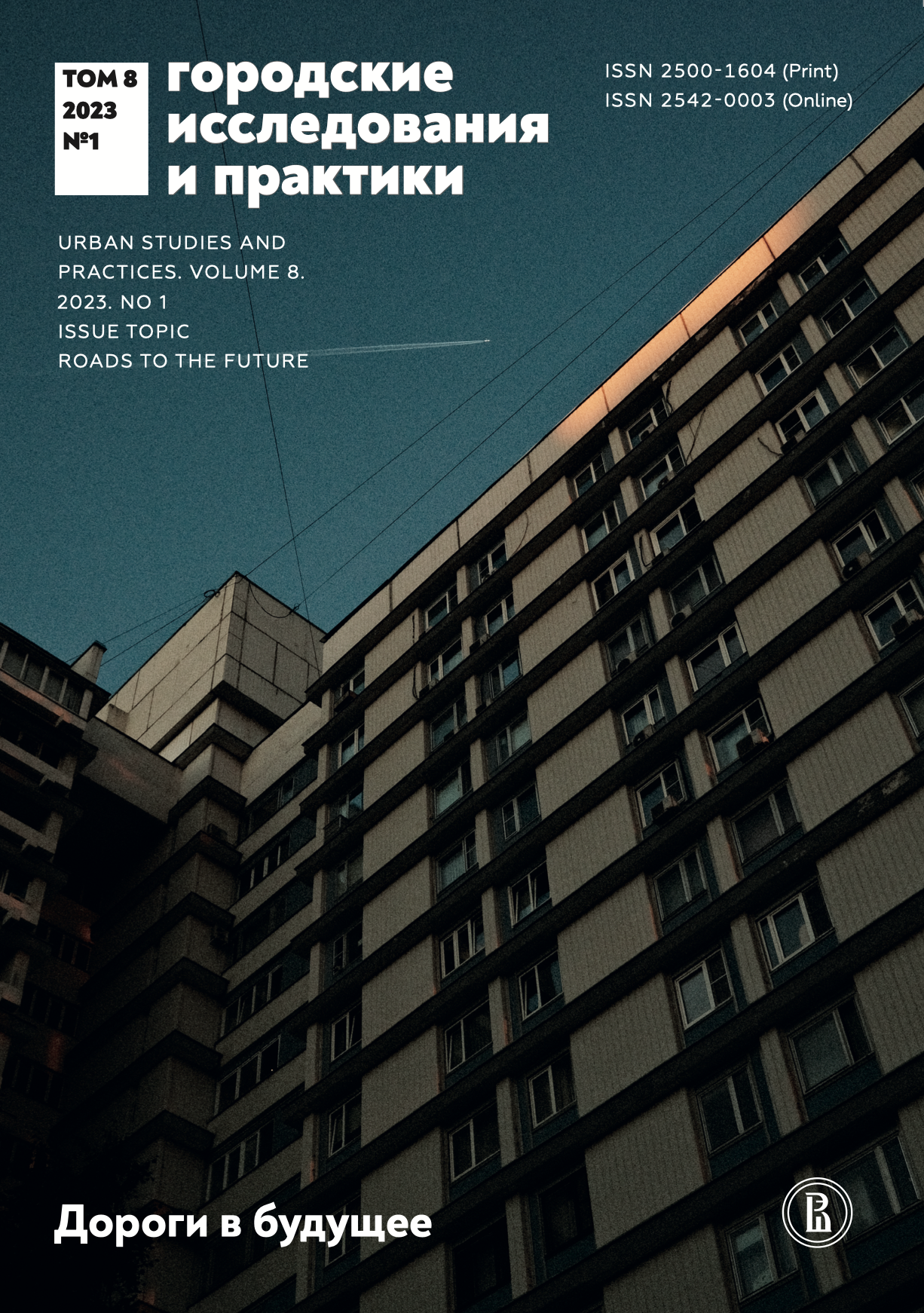Road to Nowhere
Abstract
The suburban, a ented future offered market opportunities for automotive companies, property developers, and consumer goods manufacturers. Their combined influence, paired with a brilliant marketing campaign, was enough to get political leaders to respond to their demands and direct significant resources into realizing their vision of the future. The corporations didn’t predict a car-centric, consumerist future—they made it a reality.
After restructuring how we communicate with one another, entertain ourselves, buy consumer goods, and far more, the companies that have prospered as the internet expanded to every corner of the globe are now setting their sights on the physical environment, with a particular focus on the transportation system.
But after a century of living in cities built for cars, we must be wary of embracing sweeping master plans that fail to properly consider the full effects of what elite proposals will likely mean for the rest of us.
In the following chapter of the book the author makes the case that we need a better transportation system and by extension better cities. Starts by digging into the history of automobility to illustrate how transportation systems—both in cities and beyond—were reconstructed through the twentieth century to make way for the automobile and how that change was not one that was demanded by the public, but rather was implemented against their wishes by capitalist interests.
The author’s argument is not that we do not need a significant overhaul of the way transportation works, nor indeed that we do not need to reimagine how we approach urban planning. In recent years, there has been a lot more discussion about the need to challenge auto-oriented development in favor of prioritizing pedestrians, cyclists, and public transit to enable denser, greener, and more walkable communities. But progress is far too slow given the harms and inequities of the current system. Where changes do happen, it is not uncommon that they benefit only the wealthy while excluding the poor and the working class.
Downloads
References
Brown J.R., Norris E.A., Taylor B.D. (2009) Planning for Cars in Cities: Planners, Engineers, and Freemays in the 20th Century//Journal of the American Planning Association. Vol. 75. No. 2. P. 161-177.
Caiazzo F. et al. (2013) Air Pollution and Early Deaths in the United States. Part I: Quantifying the Impact of Major Sectors in 2005//Atmospheric Environment. Vol. 79. P. 198-208.
Culver G. (2018) Death and the Car: On (Auto)Mobility, Violence, and Injustice//ACME: An International Journal for Critical Geographies. Vol. 17. No.1. P. 144-170.
Delbosca A. (2019) Dehumanization of Cyclists Predicted Self-Accepted Aggressive Behaviour toward Them: A Pilot Study//Transportation Research Part F: Traffic Psychology and Behaviour. Vol. 62. P. 681-689.
Fatally Hurt by Automobile (1999) New York Times. Режим доступа:
Timesmachine.nytimes.com.
Gartman D. (2004) Three Ages of the Automobile: The Cultural Logics of the Car//Theory, Culture & Society. Vol. 21. No. 4-5. P. 169-195.
Gorz A. (1973) The Social Ideology of the Motorcar//Le Sauvage. Unevenearth.org.
Hale L. (2016) Happy 60th Birthday, Interstate Highway System//American Society of Civil Engineers. Infrastructure reportcard.org.
Hall P. (2010) Cities of Tomorrow: An Intellectual History of Urban Planning and Design Since 1880//4th ed. Wiley Blackwell.
Falcochio J.C., Levinson H.S. (2015) How Transportation Technology Has Shaped Urban Travel Patterns//Road Traffic Congestion: A Concise Guide. Springer International. P. 9-17.
Lawrence E.D., Boney W., Tanner K. (2019) Death on Foot: America's Love of SUVs Is Killing Pedestrians//Detroit Free Press. Freep.com.
Marx P. (2022) Road to Nowhere. London: Verso. P. 9-35.
Mattioli G. et al. (2020) The Political Economy of Car Dependence: A Systems of Provision Approach//Energy Research & Social Science. Vol. 66, 191486.
Norton P.D. (2008) Fighting Traffic: The Dawn of the Motor Age in the American City. MIT Press.
Rosenbaum D.E. (1972) For the Highway Lobby, a Rocky Road Ahead//New York Times. Nytimes.
Sadik-Khan J., Solomonov S. (2016) Streetfight: Handbook for an Urban Revolution//Viking.
Shepardson D. (2020) U.S. Traffic Deaths Soar to 38,680 in 2020. Highest Yearly Total since 2007 (2021) Reuters. Reuters.com.
Shill G.H. (2020) Should Law Subsidize Driving?//New York University Law Review. Vol. 95. No 2. P. 498-579.
Shoop D. (2006) The High Cost of Free Parking. Routledge.
Smith J.Ed. (2012) Eisenhower in War and Peace. Random House.
Southworth M., Ben-Joseph E. (1995) Street Standards and the Shaping of Suburbia//Journal of the American Planning Association. Vol. 61. No. 1. P. 65-81.
Urry J. (2004) The "System" of Automobility//Theory, Culture & Society. Vol. 21. No. 4-5. P. 25-39.
World Health Organization (2021) Road Traffic Injuries. WHO.int.
Zukin Sh. (2011) Jane Jacobs (1916-2006)//The Architectural Review. Architectural-review.com.

